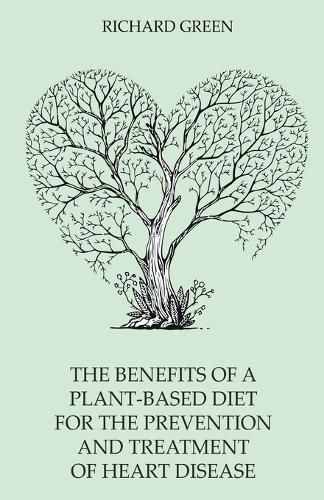Readings Newsletter
Become a Readings Member to make your shopping experience even easier.
Sign in or sign up for free!
You’re not far away from qualifying for FREE standard shipping within Australia
You’ve qualified for FREE standard shipping within Australia
The cart is loading…






This title is printed to order. This book may have been self-published. If so, we cannot guarantee the quality of the content. In the main most books will have gone through the editing process however some may not. We therefore suggest that you be aware of this before ordering this book. If in doubt check either the author or publisher’s details as we are unable to accept any returns unless they are faulty. Please contact us if you have any questions.
Plant foods contribute toward the treatment of heart disease.
Simply eating right can make significant contributions toward extending life expectancy and reducing mortality. An abundance of research has shown that heart disease can potentially be reversed with diet alone in a substantial number of patients.
Although current research findings and statistics lean toward conventional prevention and treatment, recent research has offered a new perspective for the benefits of dietary interventions, particularly for the whole food plant-based diet. A plant-based diet consists of fruit, grains, legumes, vegetables, and little to no animal foods (i.e., dairy products). Whole foods include those that have undergone a minimal amount of processing, free of artificial and other additives that distract the body from obtaining the original nutrient composition upon digestion. An example of this distinction is seen in white bread, which has ultimately been processed to a point where the product has lost a majority of its whole wheat nutritional value. This book will examine the role that such an alternative diet may have in preventing and treating heart disease.
$9.00 standard shipping within Australia
FREE standard shipping within Australia for orders over $100.00
Express & International shipping calculated at checkout
This title is printed to order. This book may have been self-published. If so, we cannot guarantee the quality of the content. In the main most books will have gone through the editing process however some may not. We therefore suggest that you be aware of this before ordering this book. If in doubt check either the author or publisher’s details as we are unable to accept any returns unless they are faulty. Please contact us if you have any questions.
Plant foods contribute toward the treatment of heart disease.
Simply eating right can make significant contributions toward extending life expectancy and reducing mortality. An abundance of research has shown that heart disease can potentially be reversed with diet alone in a substantial number of patients.
Although current research findings and statistics lean toward conventional prevention and treatment, recent research has offered a new perspective for the benefits of dietary interventions, particularly for the whole food plant-based diet. A plant-based diet consists of fruit, grains, legumes, vegetables, and little to no animal foods (i.e., dairy products). Whole foods include those that have undergone a minimal amount of processing, free of artificial and other additives that distract the body from obtaining the original nutrient composition upon digestion. An example of this distinction is seen in white bread, which has ultimately been processed to a point where the product has lost a majority of its whole wheat nutritional value. This book will examine the role that such an alternative diet may have in preventing and treating heart disease.